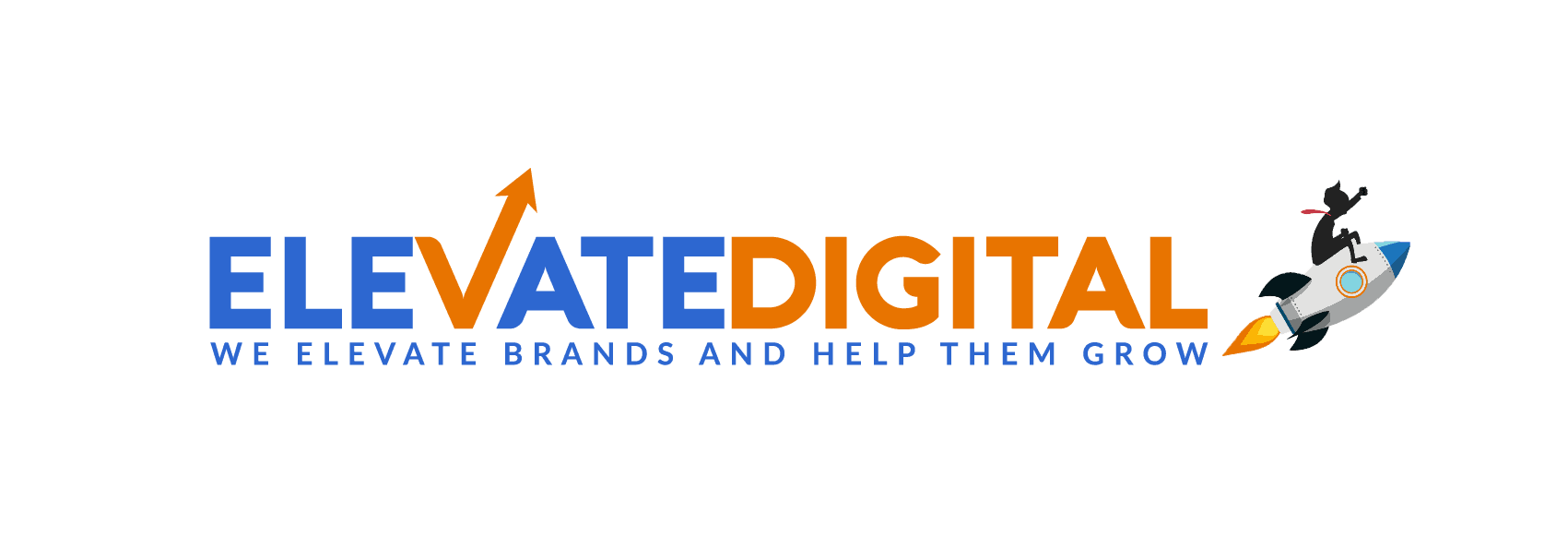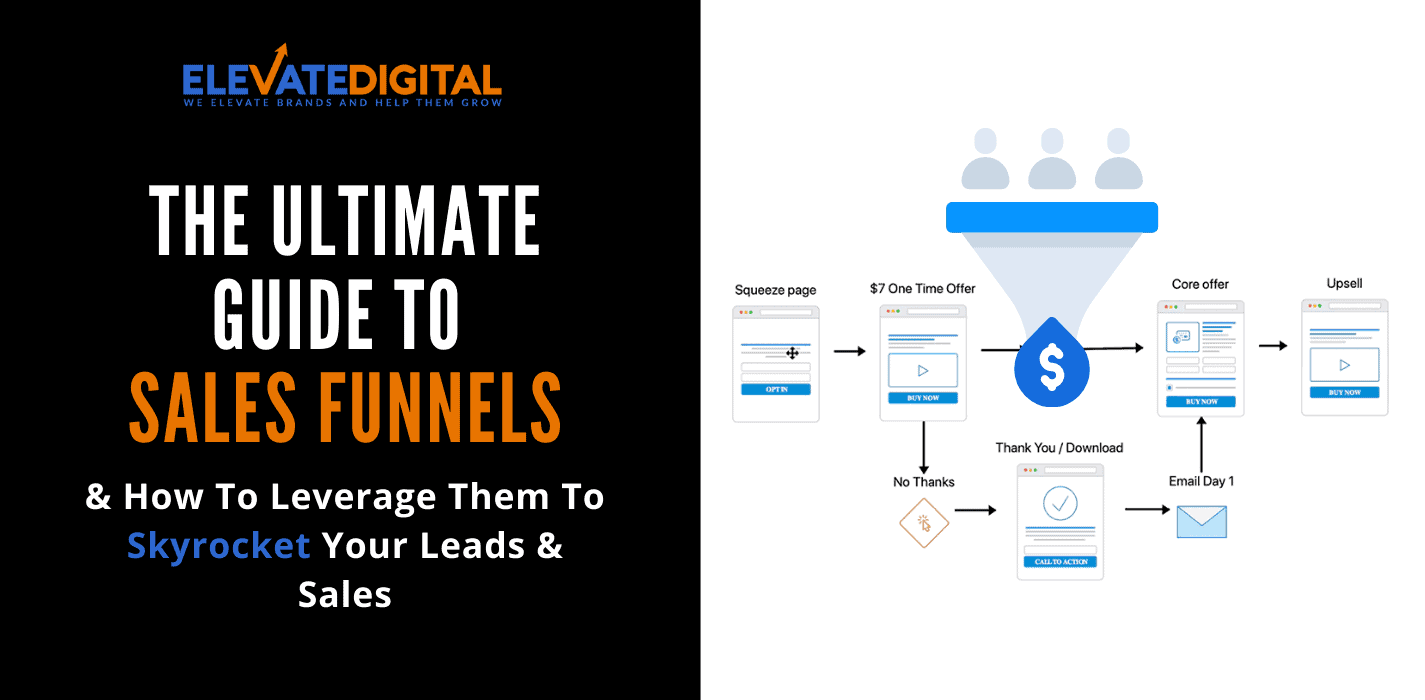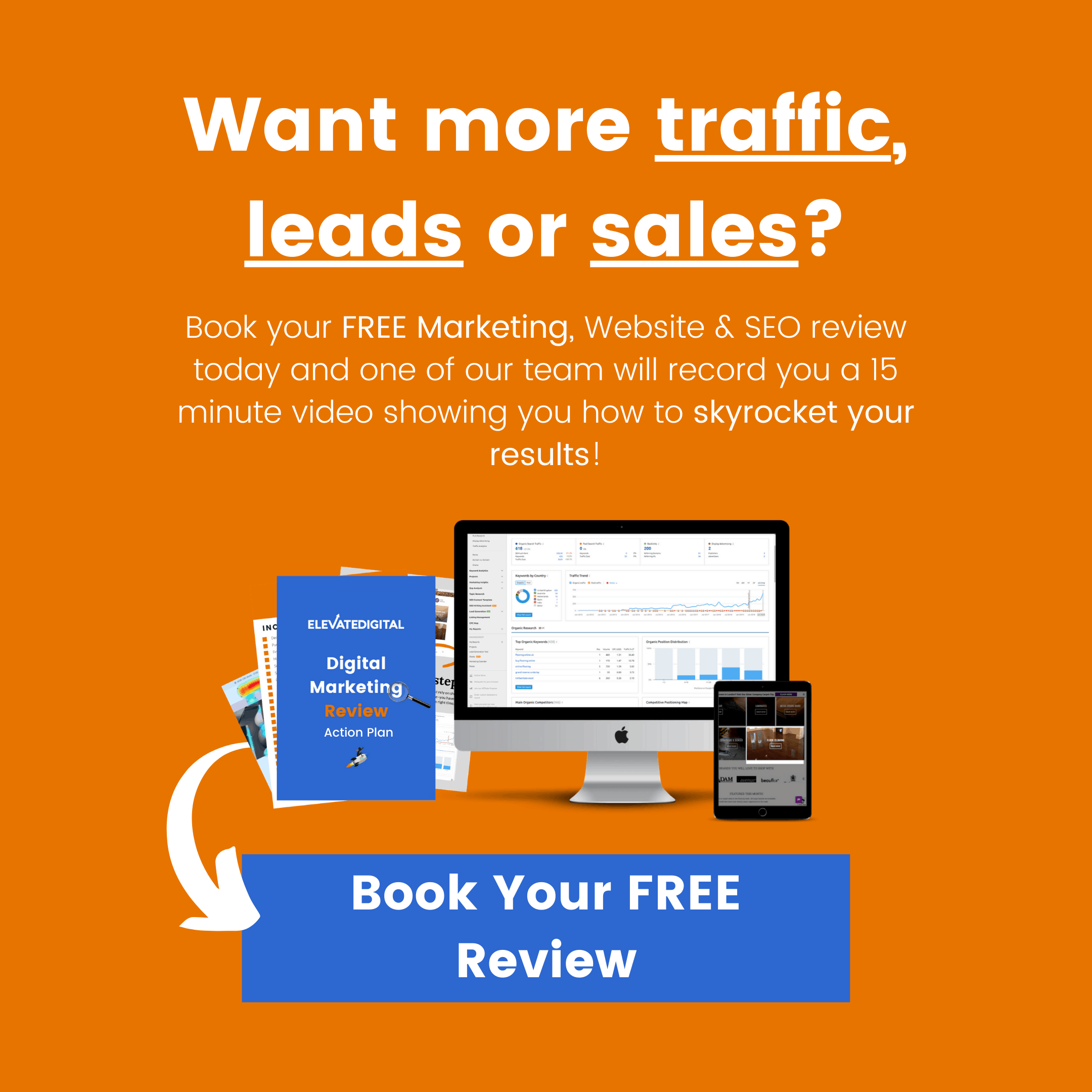Sales funnels have been all the rage over the past few years and even though they can be extremely effective at generating leads and sales…
There are also some limitations to be aware of.
Not to mention some key nuances and distinctions between a regular website.
But with businesses across HUNDREDS of different industries now having used sales funnels to generate millions of pounds in sales every year.
They could potentially game-changing for your business AND life.
So let’s dive straight into it!
So…what is a sales funnel anyway?
A sales funnel is almost like your very own online sales person (just without the salary and laborious recruitment process)
They have one goal and one goal only; generate leads and sales for the business.
Whereas a traditional website will have a number of different pages and menu options for the visitor to choose from…
The pages in a sales funnel will be delivered in a very specific step-by-step sequence. As such, it eliminates the user clicking around to different pages/links and getting lost.
The sequence in a sales funnel is specifically designed to turn visitors into leads and leads into buyers.
Here’s an example of how a typical sales funnel might look:
➡️Sales Page
➡️Order Page Or Up-Sell page
➡️Thank You Page

What is the difference between a website and a sales funnel?
The main difference between a dedicated sales funnel and a website, is that a funnel is typically designed to funnel people to one particular goal.
A website on the other hand can be used for multiple things such as providing a back-end members area, having a resource page or blog or even giving more information about the company.
Ultimately, whether you have a simple website or you’re using a multi-step sales funnel, the end goal should always be to generate leads and sales.
The main difference is in how they go about it.
Sales Funnel
➡️Step by step page flow, usually with multiple up-sells and cross-sells
➡️Sole intent of producing a lead or sale
➡️Minimal distractions on the page
➡️Often won’t have menu icons to avoid distracting visitors
Website
➡️Multiple pages available for the visitor to choose from
➡️Usually has a menu with different options like, about us, contact, services, etc…
➡️May be used to host membership area, blog and other resources
➡️Used for SEO purposes
Can a sales funnel help to grow my business?

The short answer…Absolutely!
A sales funnel can be used for almost ANY type of business, product or service.
The only limit is your creativity.
Russell Brunson of Clickfunnels is notorious for his “one funnel away” ethos. Suggesting that you are only ever one funnel away from changing your life and business forever.
Whilst, this is true to an extent. It’s good to not go into it with the expectation of it becoming a HUGE success overnight.
Crafting high-converting sales funnels can take practice, and it also requires a degree of patient and experimenting with what works and what doesn’t.
The main variable to anything like this is your audience.
Just because something worked for one business, it doesn’t mean it will work exactly the same way for yours.
Probably one of the best things about a sales funnel is that it can simplify the process and eliminate the need for pricey complex websites.
This can be great for startups who want to run a lean operation in which to make their first £1 million in sales.
The fact is, the confused mind will struggle to make a decision.
Yet most websites typically give people a huge range of pages and options to get lost in.
Which is why most websites only convert LESS than 2%of visitors to sales.
Now that isn’t to say websites don’t have a purpose; because they can be great for really optimsing your SEO and organic ranking. A website is also great for allowing customers to learn more about your full range of products & services.
But when it comes to generating sales, the beauty and genius in a sales funnel is really in a simplicity.
Types of sales funnels
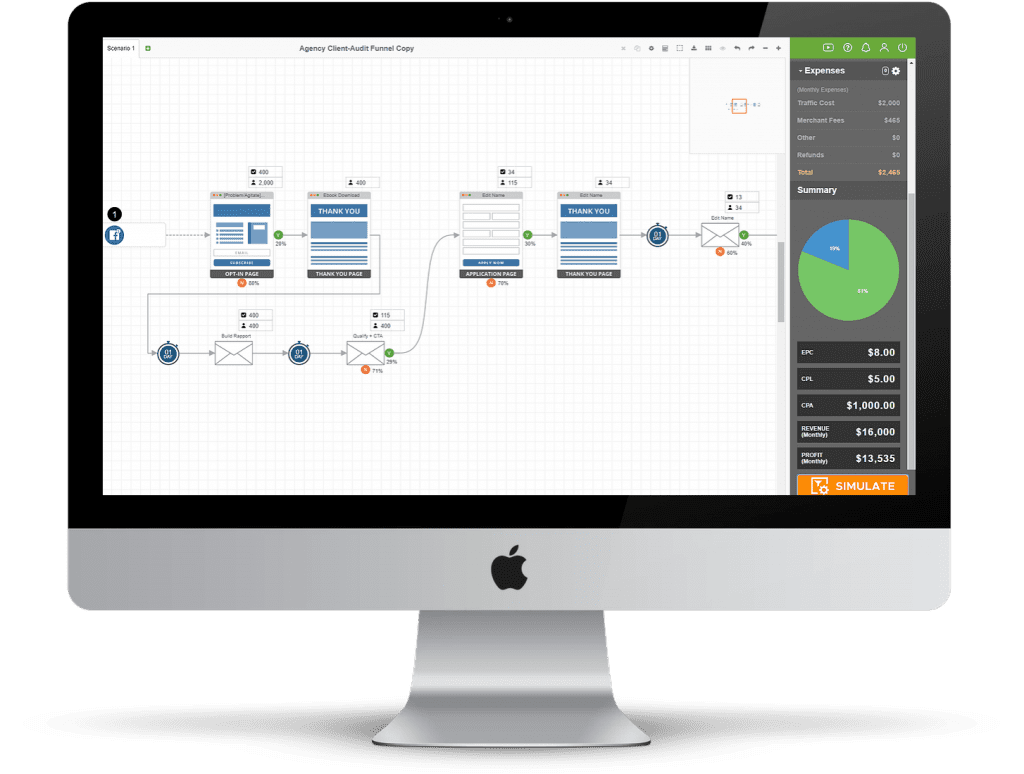
Sales funnel have evolved over the years and taken on various different shapes, sizes and forms.
Here are just a few types of sales funnels you can use in the business:
Quiz funnels
A quiz funnel can be a great way of creating a more engaging a personalised experience.
This would typically be done by asking the user a series of questions with multiple outcomes that send people to the relevant product/service.
The quiz itself should be highly valuable so so that people actually want to complete it.
For example, a business coach or consultant my have a quiz called “What’s your entrepreneurial superpower?”
Which then depending on the answers people gives, directs them to a particular consulting package.
Here’s an example for a company that sells glasses:
Webinar funnels
Webinar funnels can be extremely effective when you’re looking to sell a high-priced product or service at scale.
The webinar itself should be designed to both educate and bring huge value to the viewer whilst acting as a bridge to your product/service. At the end of the webinar you can either opt to request people book a call, or have a sales page contained within the funnel.
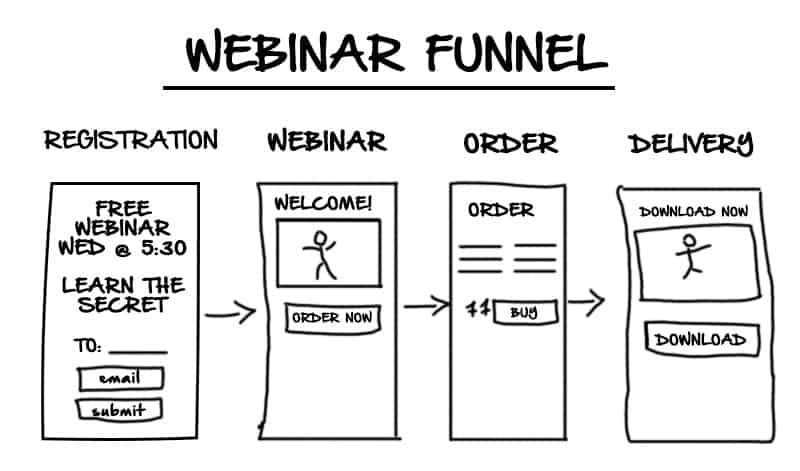
Product funnels
Product funnels can be great for e-commerce stores who have one or two core products they are looking to sell.
For example, let’s say you have 2 products that you’re looking to sell.
This could either be sold via two separate sales funnels (if the products have a different audience) or simply by having one main product, then having the other product as an upsell within the funnel.
Appointment funnels
Appointment funnels are used to generate sales calls, consultations or appointments.
When SHOULD you use a sales funnel?
As mentioned above, sales funnels can be extremely useful when you need to generate leads and sales without added complexity.
It can also be a great way to gauge initial interest or generate leads for a new product or service launch.
You’ll also want to consider using a sales funnel when running a PPC advertising campaign.
This is because when you’re paying for traffic on certain keywords. You want to ensure that you’re optimising your chances of generating a sale as much as possible.
By sending people to a traditional website with lots of options, you can significantly impact your conversion rate.
When SHOULDN’T you use a sales funnel?
There isn’t really any major reason you shouldn’t be using a sales funnel in your business. Especially when you consider, it can easily be used in conjunction with a website.
But there are some obvious limitations.
Sales funnels are relatively static in nature and due to the rigid link/page structure they are not ideal for SEO and organic search.
As a big part of sales funnels comes down to the simplicity, they’re not suitable for e-commerce stores with a range of different products.
How do you create a sales funnel for your business?
You can actually create a sales funnel within an existing website.
You’ll just need to remove the menu options and ensure the pages flow in a specific sequence as mentioned above.
Alternatively, there are some great software platforms out there designed specifically to build and create sales funnel.
Our personal recommendation is Convertri.
It has a range of funnel templates to choose from, a beautiful drag and drop builder and easy integrations with a range of payment processors.
It’s also substantially cheaper than closest competitor Clickfunnels.
You can get a free trial on Convertri here.
Alternatively, if you’d like one of our expert funnel builders to help design a customer sales funnel for your business, get in touch with us today
Want help increasing your leads and sales (even without a sales funnel)?
Book your FREE digital review today and we’ll record you a 10 minute video looking at your website, as well as your current marketing and advertising strategy and suggest some ways you could significantly increase your results!
- Highly-Effective DTC Marketing Strategies & Examples - February 28, 2024
- How To Set Paid Media Marketing Budget - October 16, 2023
- The Ultimate Guide To A/B Testing - September 23, 2023
